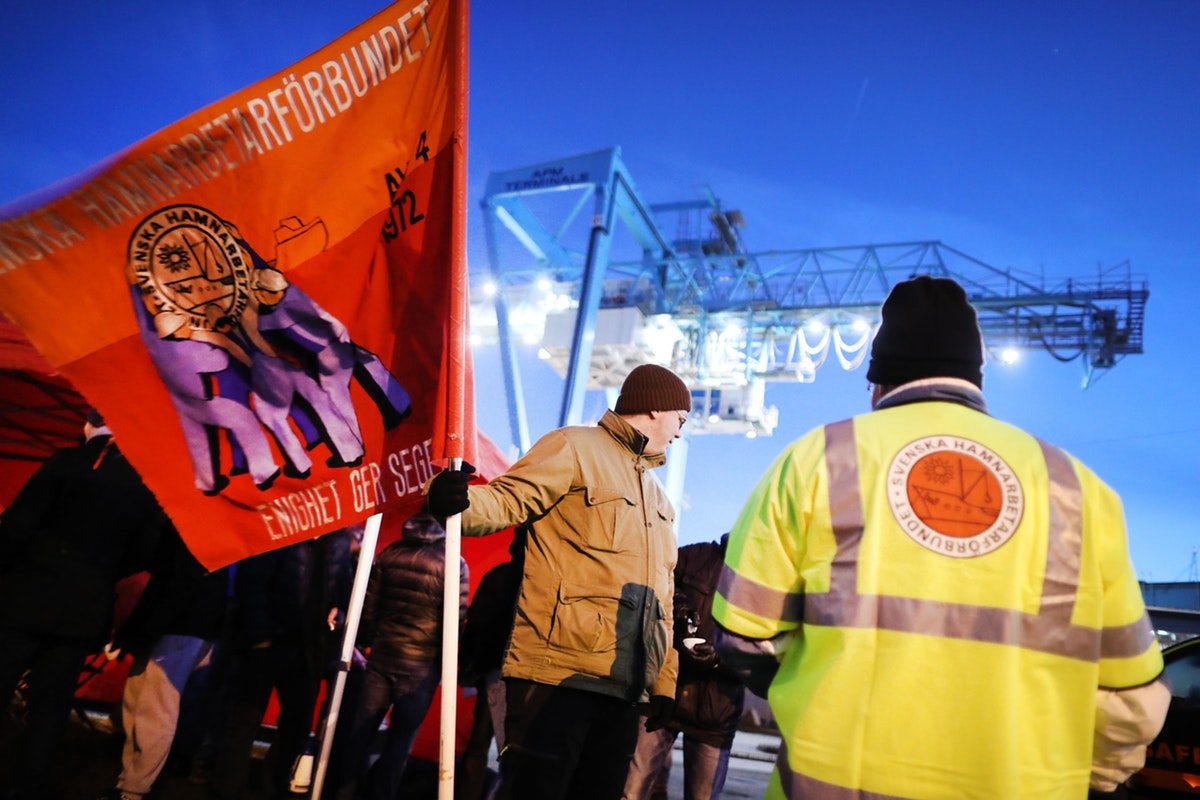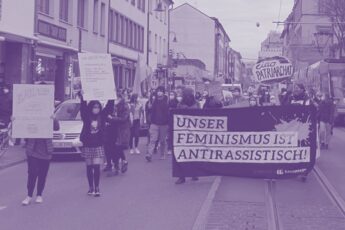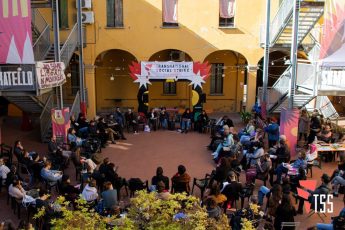
by TRANSNATIONAL SOCIAL STRIKE PLATFORM
The Strike Back movement in Sweden will mount a city-wide disruption in Stockholm this Saturday. Why? Because it calls workers both unionised and otherwise, unemployed or in school – and from any nation – to manifest against a new proposal which intends to make most forms of strike illegal. This article tries to demonstrate why this attack which happens to be hitting Sweden right now, is a concern for proletarians everywhere.
Workers in Sweden are facing a new prohibition on workplace conflict. This prohibition will cripple workers’ influence in a way that is unmatched in modern Swedish history. But its effects reach beyond the borders of a single country. It is not by chance that the new Swedish law has been presented as a response to worker interference in a major international logistics hub (in Gothenburg). Rigid control of logistics is the keystone of contemporary capitalist production. Profit maximisation is threatened when workers – no matter where in the world – have capabilities to interfere. Companies invested in global logistics seek to flatten every obstacle in order to secure smooth sailing, so to speak, across the planet. When they remove working class power in one place, it diminishes possibilities to build up working class power in every other place. Therefore, we can only respond properly by organising transnationally, using new forms of unity and coordination to strike back.
What is now unfolding in Sweden can be seen as part of an intensified and global assault on working class capacity to organise effectively and is indeed only the latest in a series of attacks across Europe, such as Jobs Act in Italy and Loi Travail in France, to name but two. The Swedish proposal is brought forth by a collusion between the Confederation of Swedish Enterprise and the leadership of the national labour union conglomerate called LO, which, in turn, is firmly controlled by the governing Social Democratic party. The proposal is presented as a ‘necessary protection’ against an earlier proposal which came out of a state investigation – conducted by the very same party. It’s like someone threatening to shoot you and then offering a deadly poison as protection.
We must understand the specificity of the conflict – in a major container port – which gave the economic elite (and allied political actors) the impetus to take action for this new law. Shipping and storage routines are not simply planned for movement of goods. Modern logistical planning is commonly understood as the technology of control of costs and profit maximisation. The infected conflict in the port of Gothenburg between the multinational shipping company Maersk/APM-Terminals and the local branch of an independent, direct-democratic stevedore’s union known as Hamn4an, has been a huge bother to this technology of exploitation. When the company began pushing for more temp-agency workers in the port, to weaken the organisational strength of Hamn4an, the union issued a series of strikes. The port owner then tried to enforce on them a peace treaty agreement signed with the LO union, who organises far fewer workers in the port – but Hamn4an refused. At that point, Maersk/APMT effected a lockout, a measure which in number of containers left untouched, in pure money, was far more expensive and damaging to the market than the what the relatively limited strikes of the independent union were accused of causing. The actions of the owner reveal that the principal interest of such a player, is to dissolve any type of potential to resist. Temporary losses, even massive losses, that result from measures taken by the owner are of far lesser concern than the long term obstacles that workers are able to create through the right to strike.
Meanwhile, we see that rather than protecting this right, governments and even certain mainstream unions take sides with transnational capitalists, to ensure them the maneuverability they ask for to maintain their competitive edge. This happens regardless of the political colour of governments, as they are all forced to satisfy the interests of capital investors. If implemented, the new strike regulations in Sweden would create a template for wiping out even relatively strong worker rights, anywhere. It must be regarded as part of a tendency to increase capitalist immunity worldwide, and must therefore be combated by an intensified transnational cooperation between workers as well.
To some, weakened worker rights in Sweden seems like a harmless disturbance, as they are relatively strong compared to many other regions. Generally speaking, struggles (combined with the social democratic compromise) have indeed afforded workers fair conditions in Sweden. In turn, these conditions have certainly been used as incentive to move more cost efficient exploitation elsewhere, for the sake of maximising profits. It is necessary to understand, however, that the depletion of working class power in one place does not offer any boost in working class power elsewhere. In fact, the opposite is true. Capitalists invested in contemporary production, which relies on non-stop transportation of every thinkable parcel, are especially keen on waxing out resistance in locations far and wide. When Maersk/APMT faced the strength of Hamn4an in Gothenburg, they appealed to the very laws specific to the social democratic compromise; they appealed to the function of the peace treaty.
The new law will imply that workers can only strike if the agenda of the strike is to reach a peace treaty with the employer, where such agreements do not already exist. All other work disruption will be forbidden. It also implies that workers who do not belong to whatever union that has a collective bargaining agreement must submit to the peace treaty that the union with an agreement has signed. This means that an employer can invite any number of workers just to sign an agreement and then force all others to follow its peace treaty. The owner could essentially employ his/her cousins or buddies, settle the worst possible deal and from then on criminally charge anyone who takes action against it. To go on strike or do anything out of the ordinary in order to change conditions, or to prevent workers from being sacked or mistreated will become illegal.
There is however one exception to the restrictions: workers can still manifest in solidarity actions with workers in other countries (something, mind you, which has always been legal). The mobilisation to block the proposed package of prohibitions is now entering a phase which may become aggressive. But there is a heavy risk felt in Sweden, that actions to prevent the law will not be victorious. The one thing we can hope, for the future of strike action in Sweden, should this new law be passed despite resistance, is that workers far and wide exploit the one exception in every new thinkable way, and connect the nature of struggle to a global working class and fight across the borders.
The TSS platform has since its inception aimed to develop a political infrastructure to break the national and sectoral isolation of struggles against exploitation. We address the need to create conditions for connections across borders – to expand the impact of the strike as a practice of collective refusal. In the past years, we have communicated and engaged in situations where collectives broaden or socialise collective refusal and disruption.
On November 23-24, the TSS meeting on logistics will take place in Stockholm. We invite all to this gathering: as the law against the right to strike in Sweden shows the urgency of addressing logistics not simply as a sector, but rather a set of practices and methods employed to command over labour producing isolation and fragmentation, we think that this can be a decisive moment for pushing forward a process of transnational communication and organization.





